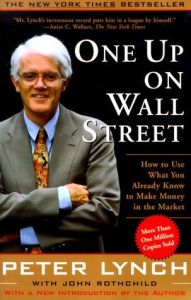Melden Sie sich bei getAbstract an, um die Zusammenfassung zu erhalten.

Melden Sie sich bei getAbstract an, um die Zusammenfassung zu erhalten.
Peter Lynch and John Rothchild
One Up on Wall Street
How to Use What You Already Know to Make Money in the Market
Fireside, 2000
Was ist drin?
Your routines as a consumer can help you discover companies worth investing in – if you can read their market signals.
Recommendation
This book has become a classic of personal investment literature for good reasons. For one thing, watching Lynch lampoon Wall Street and its cadre of institutional investors is rich fun. He is, perhaps, the foremost money manager in the U.S., thanks to the success of Fidelity’s multibillion-dollar Magellan Fund. Lynch says that when E.F. Hutton speaks, the average investor ought to take a nap. Although this is an updated edition, most of the content dates to "pre-bubble" 1989. As such, it offers haunting warnings about stocks with inflated price-to-earnings ratios. Warning to novice investors: Lynch is a Wharton grad who’s been in the market since his college days and, as such, he tends to see stocks as simple and straightforward. Like the "Oracle of Omaha," Warren Buffett, he’s a quintessential value investor who looks for undervalued companies in nuts-and-bolts industries. The difference, as Lynch puts it, is that he buys those companies’ stocks, while Buffett buys those companies. getAbstract.com strongly recommends this book to those who govern their own portfolios.
Summary
About the Authors
Peter Lynch is the vice chairman of the investment arm of Fidelity Investments. He was portfolio manager of one of the world’s premier funds, Fidelity Magellan, and is a board member of Fidelity funds. He is the co-author of Beating the Street and Learn to Earn. John Rothchild is the author of A Fool and His Money and Going for Broke.























Comment on this summary